Arsenal's 'Invincibles': Why 15 Years Later They Are Still the Best Ever Premier League Side
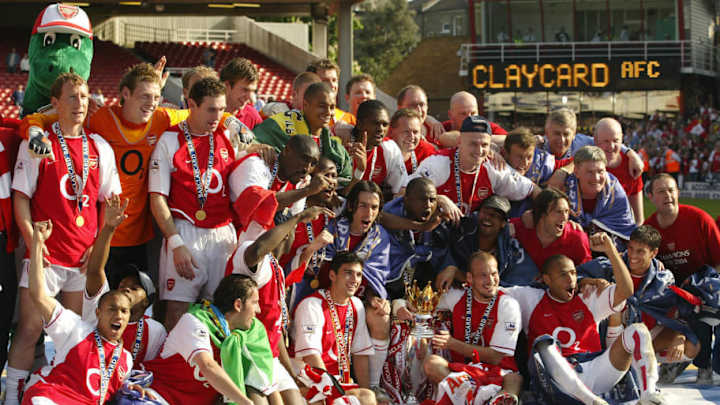
We've just witnessed Manchester City accumulate 198 points in two seasons and win back-to-back league titles, playing a brand of football that has made mincemeat of all who have stood in their paths.
Similarly, we saw Liverpool implement of style of football akin to that of music that is driven by the aggressive sounds of distorted electric guitars, and lose just one game all season. Picking up a staggering 97 points, yet ending the campaign empty handed.
Throughout the Premier League years our footballing palates have also been treated to Manchester United's treble winning side of 1999.
Congratulations to @ManCity!
— Premier League (@premierleague) May 12, 2019
Your Premier League champions 2018/19 👏👏👏 pic.twitter.com/gGkHnacUYg
Jose Mourinho sculpted a wondrous Chelsea outfit in 2005, lifting the title in his first season at the helm, masterminding a team that conceded a miserly 15 goals in 38 games and kept 25 clean sheets - records that remain to this day.
So what could possibly be better?
Well, if you ask, a certain Arsene Wenger and his particular set of red and white soldiers, they would say an Arsenal side that gunned their way to the Premier League title back in the 2003/04 season without losing a single game.
A single game. A. Single. Game.
Played 38
— Arsenal (@Arsenal) May 15, 2019
Won 26
Drawn 12
Lost... 0!
🗓 #OnThisDay in 2004: The birth of the Invincibles 🏆 pic.twitter.com/8nYs8FuFj4
In goal the club had just signed Jens Lehmann from Borussia Dortmund to replace departing legend David Seaman, with the German bringing international class to the fold.
Of course, if you are to remain an entire season without conceding, your first port of call is to praise a defence for, well, doing their jobs remarkably well. Absolutely you should, the back four of Arsenal, none of this back-three malarkey in these times, was imperious.
Two central defenders, very much of the 'no nonsense' ilk, became the foundation from which the attacking players could express themselves.
Sol Campbell, a player mired in controversy, bullied opposition strikers with his immense frame and possessed a range of pass that few gave him credit for. Kolo Toure didn't actually begin the campaign alongside Campbell, with Wenger opting for Pascal Cygan to begin with.
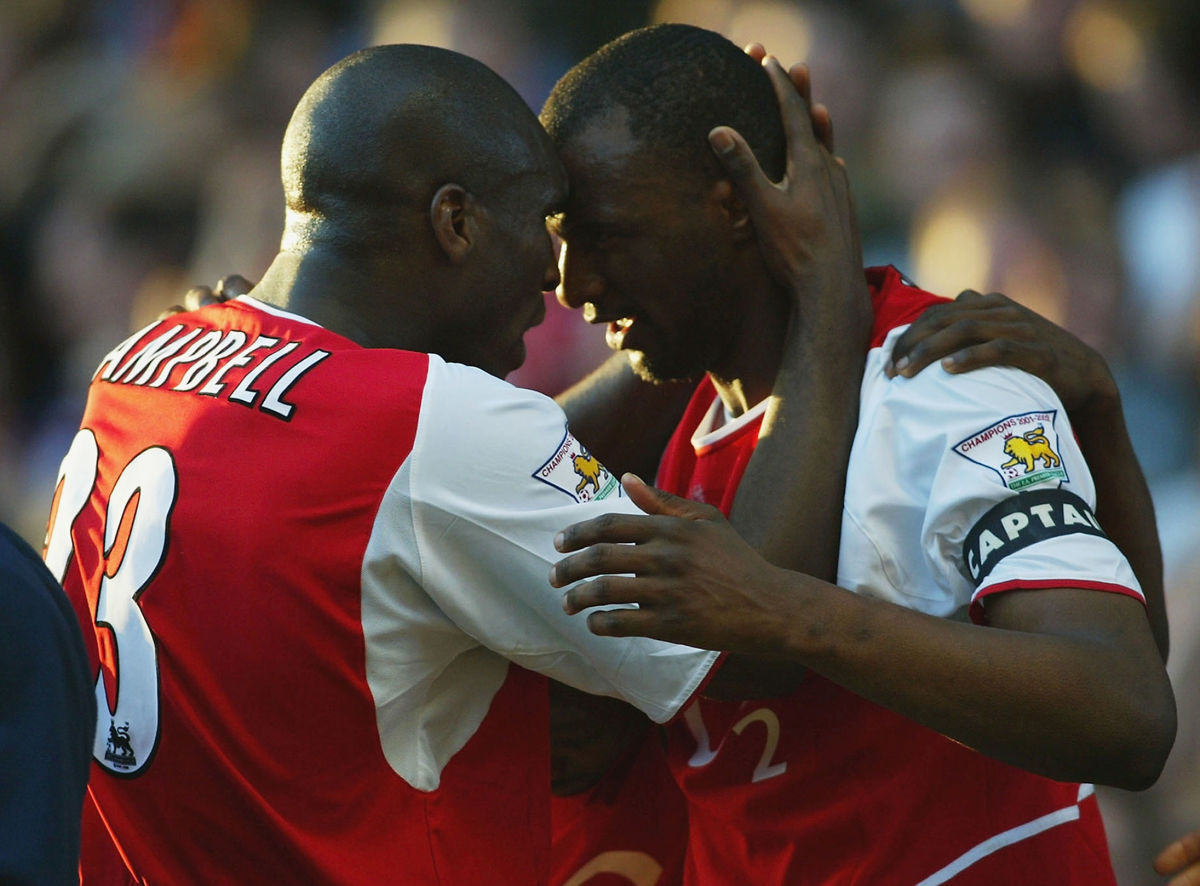
"He's bald, he's sh*t, he plays when no ones fit, Pascal Cygan, Pascal Cygan" - Gunners' fans made their feelings known.
Wenger duly changed his mind, and it paid dividends. Campbell and Toure became the duo that would stick for the vast majority of the campaign. Either side of them you had (C)Ashley Cole and Lauren, two full backs who could perform their offensive and defensive tasks with ease, perfectly capable of defending as a unit or supporting the attack.
Ah, yes, the wingers. Robert Pires commanded the left hand side of the 4-4-2 set up, finishing as the club's second top scorer that season with 14 goals. On the opposite wing was a combination of Fredrik Ljungberg, Ray Parlour, Edu, Sylvain Wiltord and Jose Reyes. Injuries hampered regular selection, so all of those players featured in some capacity throughout the season.
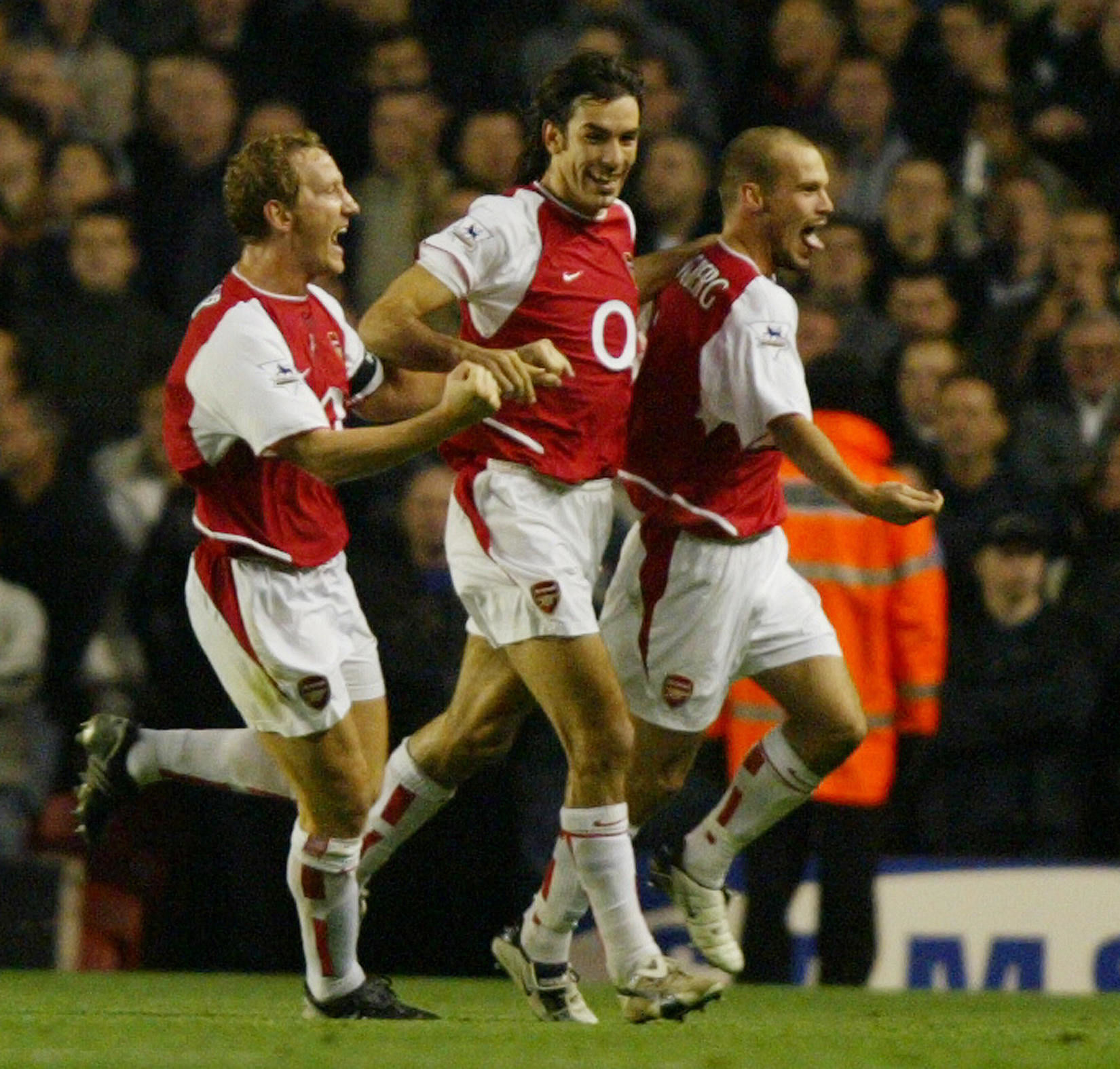
In the middle you had one of the Premier League greats in Patrick Vieira. A battling, commanding midfielder who captained the club with all the traits one would expect of a leader. Combative, strong, organised and determined.
To his side was Gilberto Silva, who went under the radar for his all-round ability and assured displays, rarely wavering from his defensive responsibilities and imperative in the role of shielding the back four.
Up front, more greats. Something that is key to point out with this side is the sheer quantity of top-flight stalwarts. Dennis Bergkamp was nothing short of a magician, operating up front but so often dropping into the number ten role where the reach of his wand was far greater.
And then there is Thierry Henry. A player immortalised into Premier League folklore, not just for the sheer quantity of goals he scored (30 that season) but for the devastating pace he possessed in every one of his numerous attributes. A player who rightly is considered the greatest the league has seen.
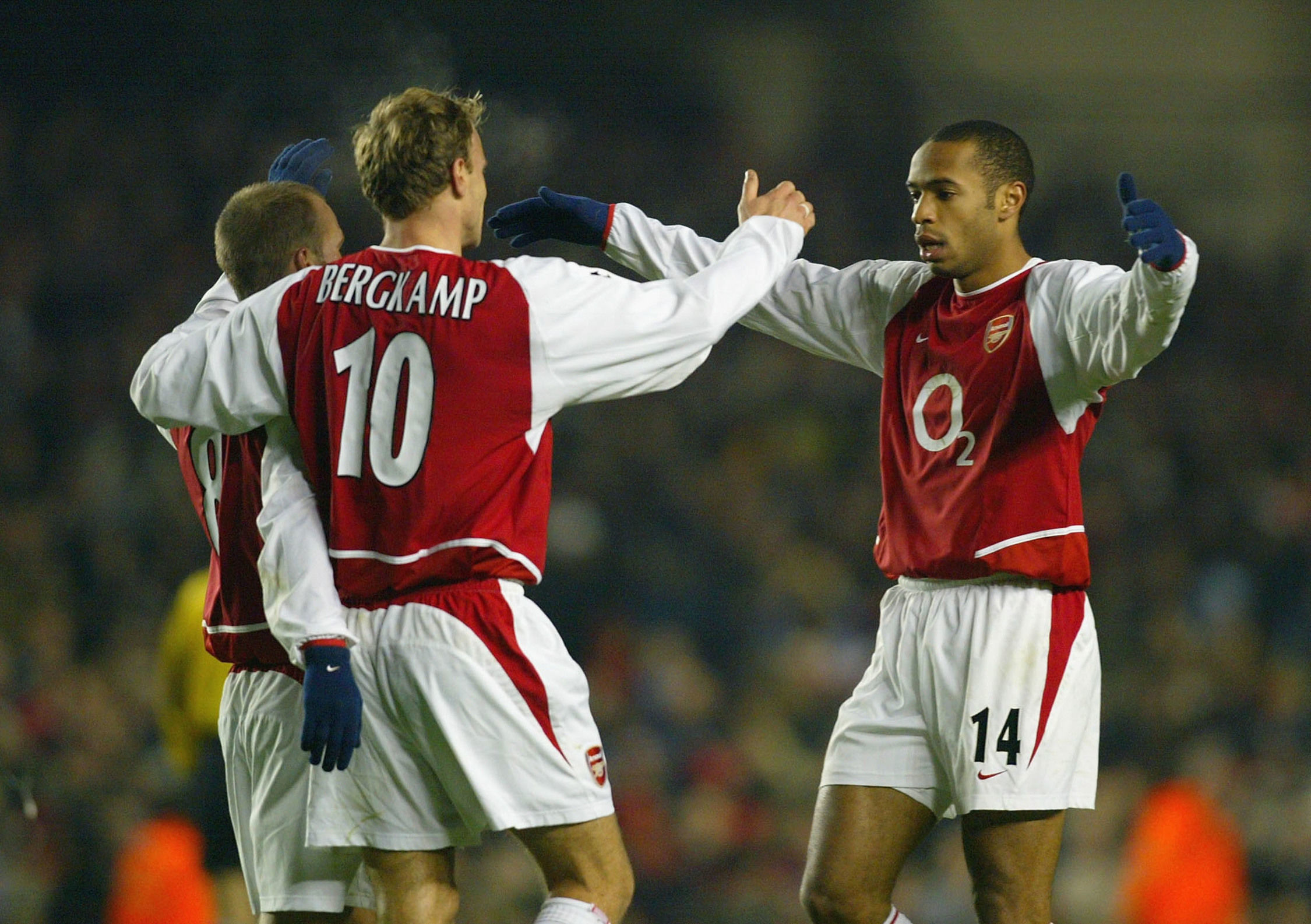
But enough about the players themselves. A team as well-drilled and historic as this isn't so purely based on individual greatness. Far more explains their majesty.
At the helm was Wenger, a man who revolutionised the division, a manager who introduced new training, fitness and dieting regimes that other bosses took on board. A manager who predicted this campaign happening, claiming it was their 'destiny' a few years prior.
It was machine that had been development for some years, fine-tuning each element and costing a measly £46.5m to get up and running. Compare that to Mourinho's Chelsea who had just been taken over by a Russian billionaire, or the current City crop who are the most expensive side ever assembled at over £700m.
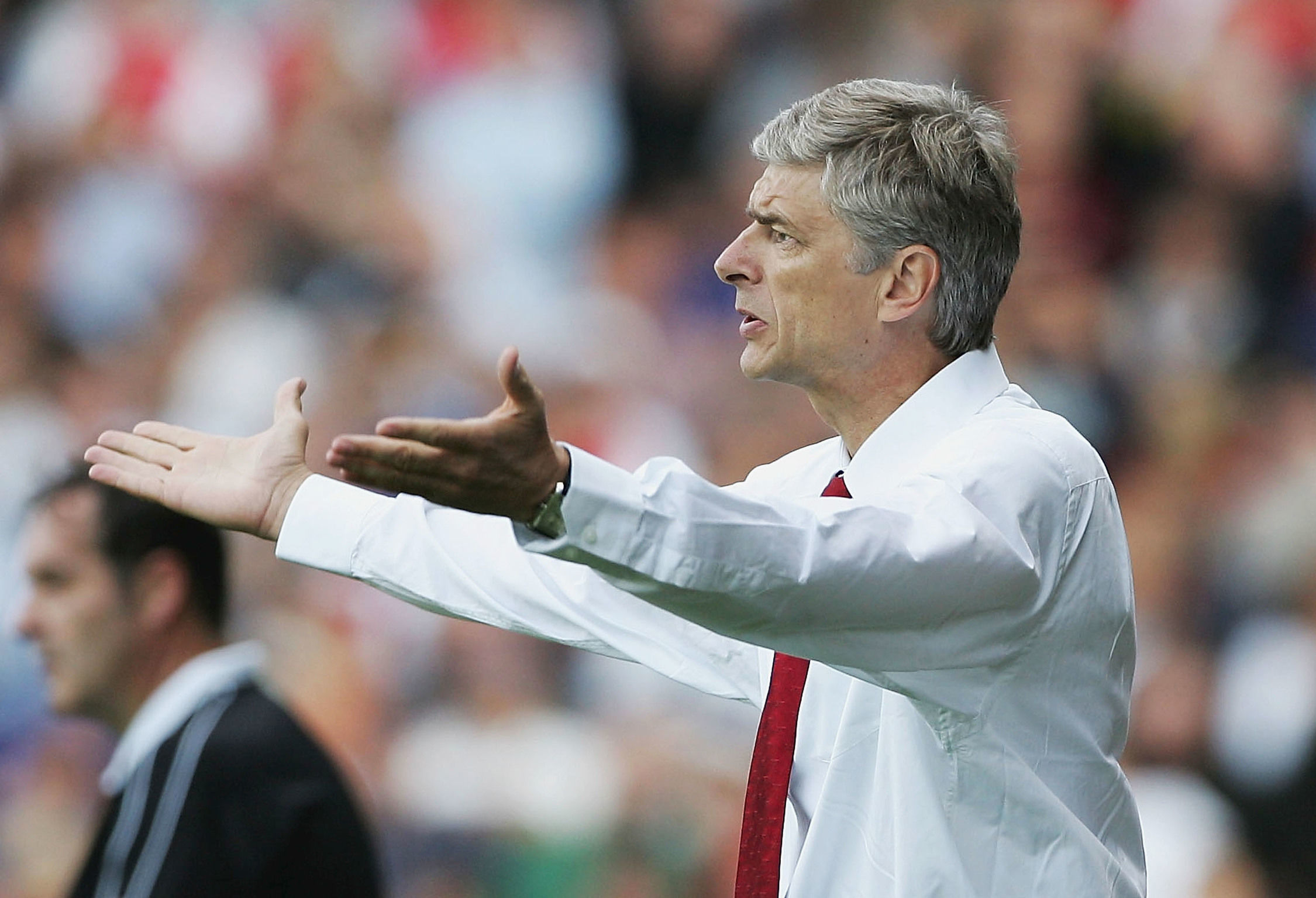
Putting finances into the argument changes the complexion of the argument entirely. However, for the sake of it let us put that to one side.
They did't lose a single game. Just to reaffirm.
Money buys players, but mentality can't be bought. The Tuesday night home matches against lower opposition can be hard to get fired up for, focuses can quiver. Yet this team never faltered.
Granted, there were some never moments throughout the season. Draws at home to Portsmouth and away at Leicester would be classed as poor results in any other season, adding to a season total of 12.
But, when coupled with an unbeaten record against the top sides, these results become 'a point gained' scenario, and showcase a resilience and mental toughness to not be beaten even when the team is under-performing.
1⃣5⃣ years since 1⃣5⃣ May
— Lauren Etame Mayer (@Lauren12arsenal) May 15, 2019
The day we finished the @premierleague season unbeaten. 🏆
The day we became #invincibles. 💪🏿
The day we were @Arsenal legends. 🔴⚪ pic.twitter.com/XFcA2rerxc
There is a reason they were dubbed 'Invincibles'.
Frankly, 'the untouchables' would have been equally as apt, but what was masterminded by Arsenal that year is the single greatest feat achieved in English football - and will likely not be replicated ever again.
It is also worth noting that they clinched the title with four games to spare at White Heart Lane, home of their most hated rivals, yet still didn't lose focus and remained unbeaten.
Take your astronomically expensive players, take your five goals per game ratio and your 100 point haul.
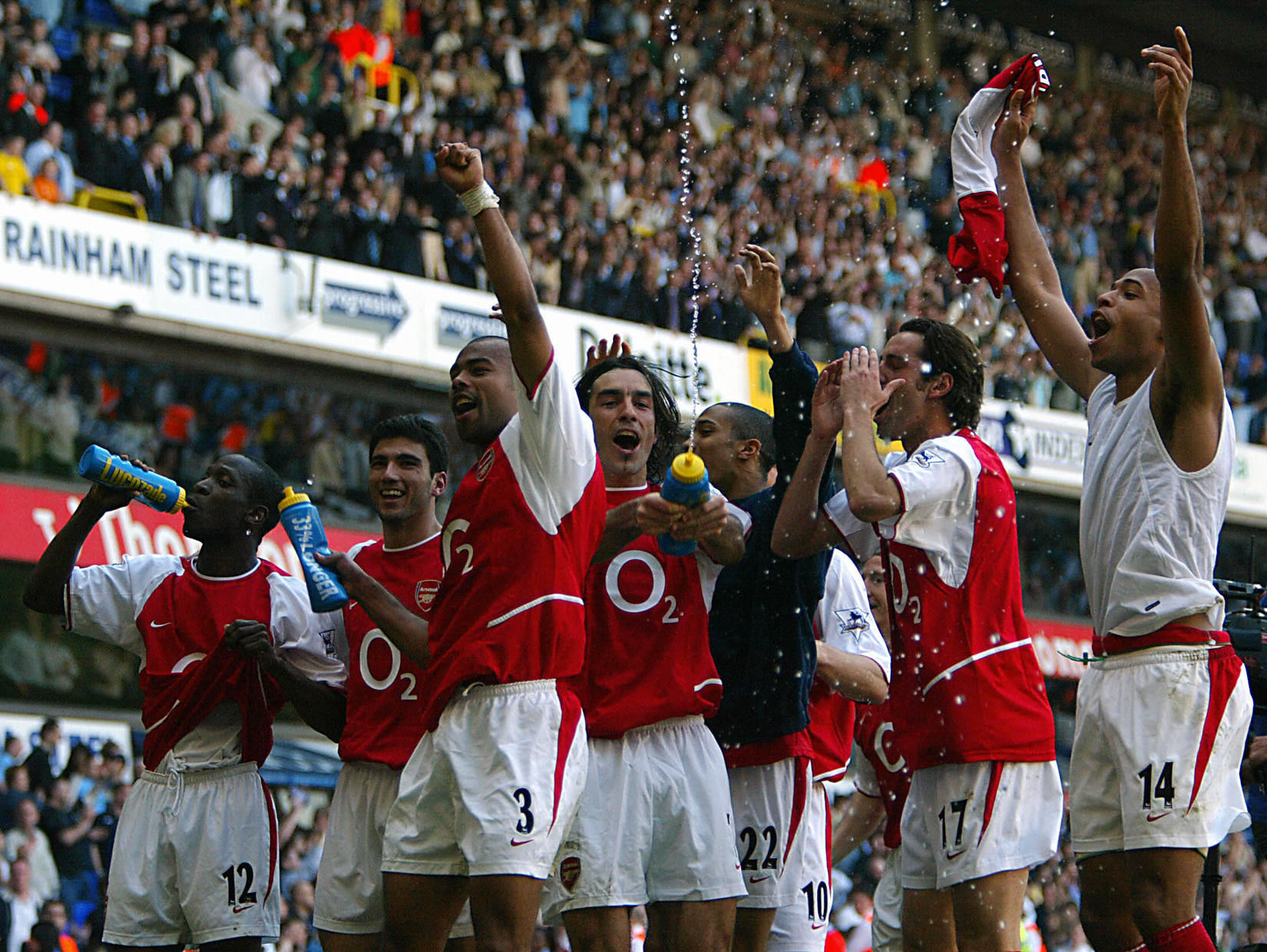
The title of 'Invincible' will forever be Arsenal's.
